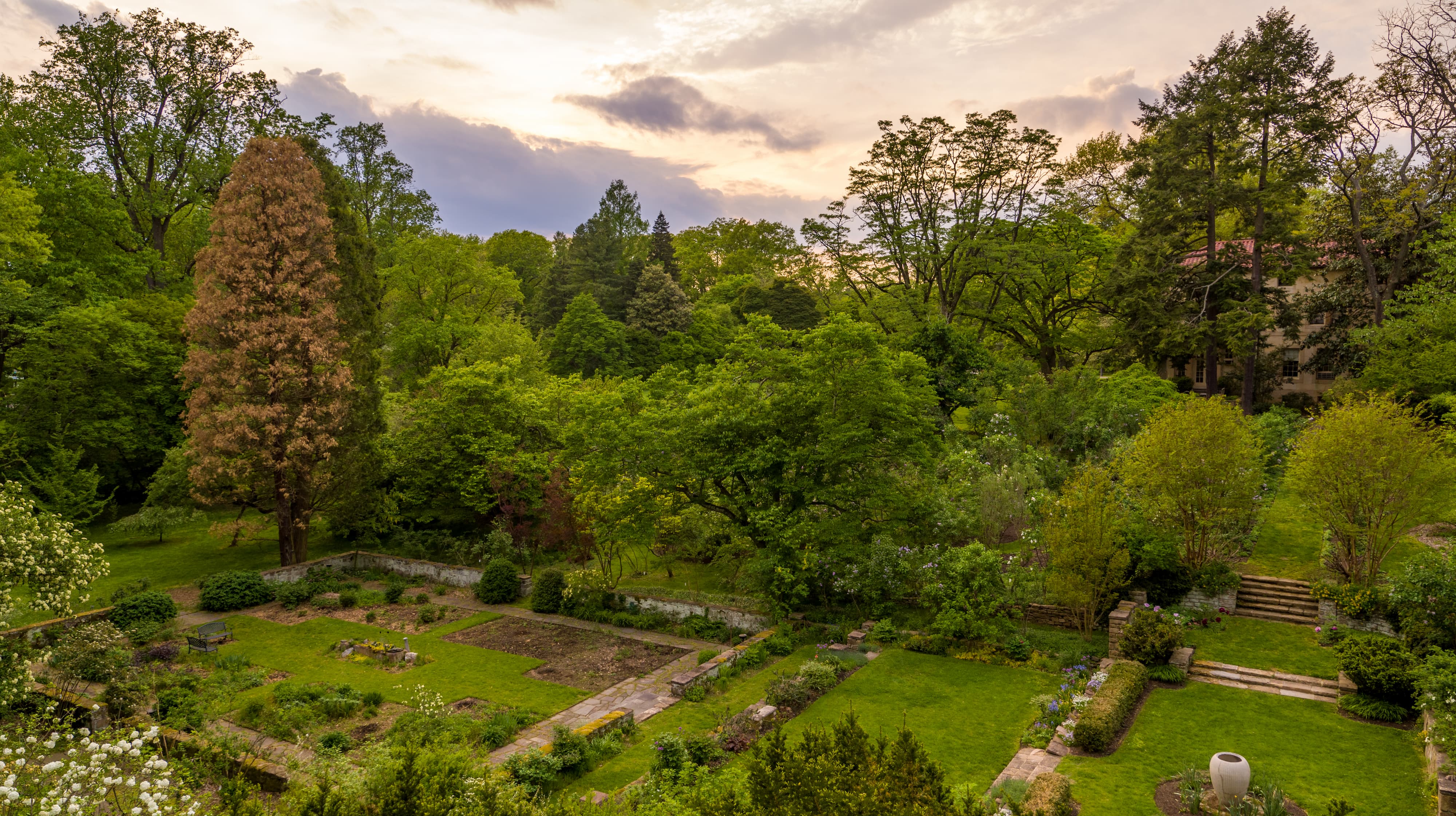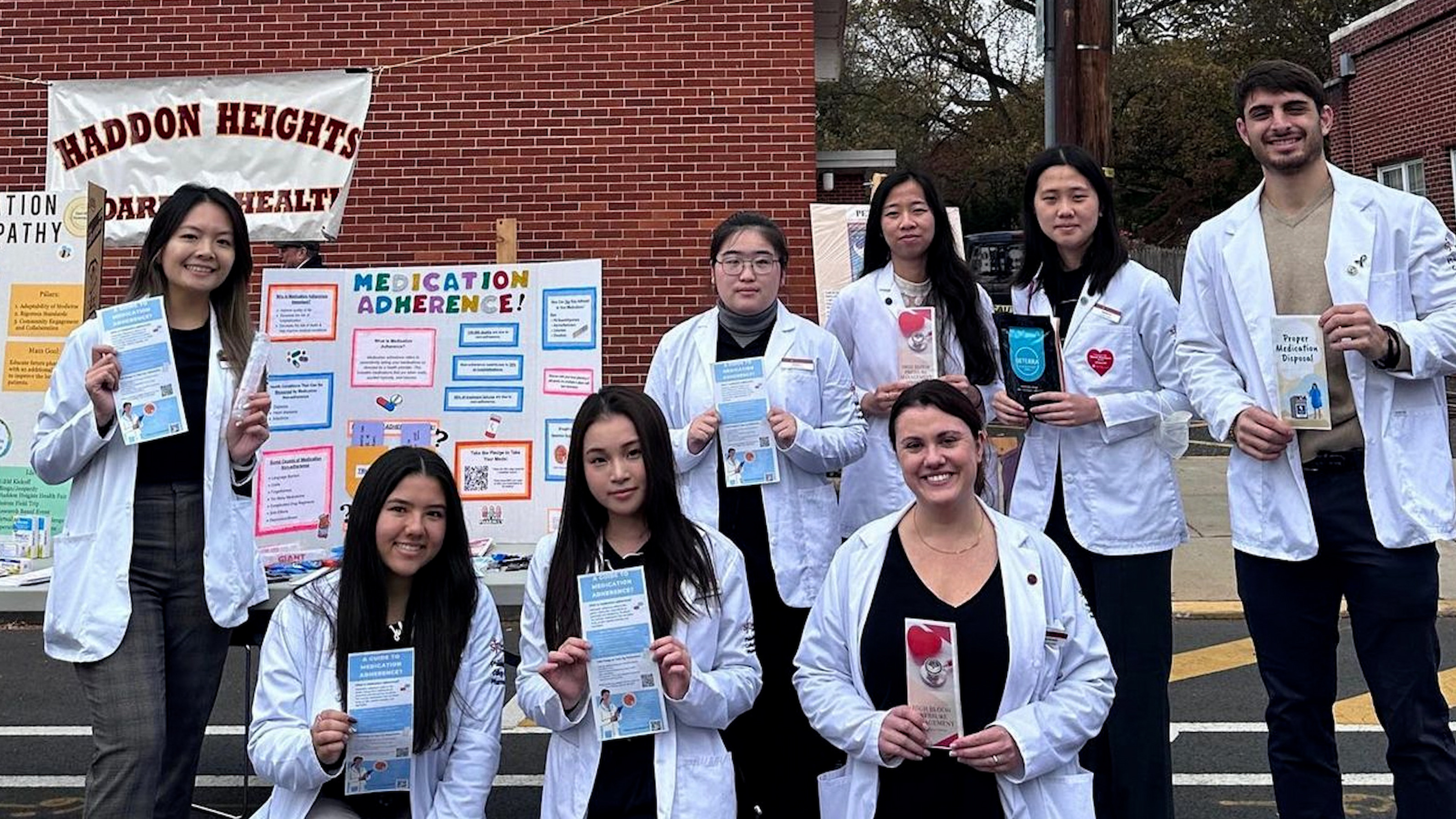Biology Faculty Invite High Schoolers into Labs
This summer, three Saint Joseph’s biology faculty hosted high schoolers in their labs to gain hands-on experience with research and putting theories into practice.
 Mice are often used as subjects for research in the lab of Jennifer C. Tudor, PhD, associate professor of biology at Saint Joseph’s, who studies the effects of sleep deprivation on behavior.
Mice are often used as subjects for research in the lab of Jennifer C. Tudor, PhD, associate professor of biology at Saint Joseph’s, who studies the effects of sleep deprivation on behavior.
This summer, Saint Joseph’s biology faculty hosted high school students in their research labs where they were exposed to hands-on research — a critical component of understanding science.
One of these students was Leilani Bacchus, a senior at Penn Charter and a STEM Scholar with the Franklin Institute. Bacchus elected to spend her summer break rotating through three separate SJU biology labs.
“I did this internship because I wanted to find out what it would look like to study biology in college,” says Bacchus. “Working in these labs helped me realize how much I like microbiology and looking at things on a cellular level.”
Bacchus’s summer culminated in the lab of Jennifer C. Tudor, PhD, associate professor of biology. There, she kicked things off observing a graduate student performing brain surgery on a mouse. This procedure was being executed to assess how sleep affected its ability to form memories, which is the overarching question being asked in Tudor’s lab.
Real lab work is an opportunity few teens get to experience before starting their undergraduate degrees.
“When I was in high school, I remember so badly wanting real, lab research experience but it was hard to come by,” recalls Tudor. “In high school, they’re learning all this information about science, but it's not actually science. The lab is where they really learn the process of doing science.”
“Running experiments on actual brains and seeing how the mice respond — it was really amazing to get hands-on experience and watch it all being done,” says Bacchus.
Research Takes Time
Rose Weathers, a junior at Harriton High School, worked alongside Bacchus in Tudor’s lab.
“What was so surprising to me was what a major role the mice play in the day-to-day procedural activities of the lab,” says Weathers. “I was kind of tasked with taking care of them and it was shocking to me how much time and effort goes into making them comfortable — it’s hard not to get attached, but, for me, understanding how critical the research is puts it all into perspective.”
Aside from caring for the mice, Weathers took on important projects like examining specific proteins within a mouse’s prefrontal cortex to look for evidence of sleep deprivation.
“People who haven’t worked in a lab can’t properly appreciate just how much time it takes for us to execute analysis like that,” says Weathers. “There’s a whole procedure for getting a single protein to show up on an imaging screen that can take two days! There is a lot of room for error, even with step-by-step instructions written out in front of you.”
Weathers spent all summer in Tudor’s lab, while Bacchus rotated through two other biology labs at SJU.
“All of the labs were so different,” recalls Bacchus. “There’s really no way to compare them.”
Igniting A Passion for Learning
In the lab of Catalina Arango Pinedo, PhD, associate professor of biology and director of the McNulty Scholars program, Bacchus worked with undergraduate and graduate students on analyzing a bacteria called Sinorhizobium meliloti, which is typically known for its ability to attach to legume plants and alter their genetic structure.
“Dealing with bacteria didn’t feel like as much responsibility,” says Bacchus. “We weren’t working on animals, so that alone made it a very different experience. ”
Bacchus and her peer, Alex Nuckols, a junior at Haddonfield Memorial High School, were examining how certain proteins help the specific bacteria deal with stressors.
“Out of the three science fields you can study in high school — physics, chemistry and biology — biology was always my least favorite,” admits Nuckols. “Being able to actually do lab work has changed how I feel about that. Now I think microbiology is way more interesting than I ever did before.”
A large part of igniting that passion for learning, explains Arango, is understanding what went wrong.
“A lot of what we do in research is failing,” she says. “Once students realize that everything they learn is the result of someone else in a lab going through this trial-and-error process until something finally works — that’s when they get inspired to figure more out on their own.”
Working on such a granular level set Bacchus up for success in her next lab rotation with Edwin Li, PhD, associate professor of biology and director of the biology graduate program.
In Li’s lab, Bacchus worked on analyzing how proteins interact with other proteins, amplifying DNA sequences and learning a technique called “western blotting” to detect specific proteins. These techniques are crucial in researching diseases like cancer, which often occur when proteins fail to interact correctly.
“Leilani worked under my undergraduate students,” says Li. “I think they shared a lot of stories about their experiences with the college admissions process and finding their majors. It was a great experience for them all.”
Like Nuckols, Bacchus had found herself avoiding biology in her high school curriculum before her SJU lab internship.
“These experiences really proved to me that biology is something I am interested in.” says Bacchus. “A lot of that can be credited to doing real lab work — I could never have done this work in a high school bio class.”
To learn more about SJU’s biology program, visit www.sju.edu/departments/biology.



